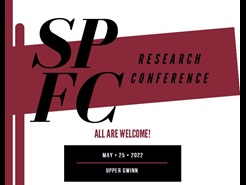Reduced Affective Well-Being via Perceptions of Campus Climate for Students who Identify as LGBTQIA+
Faculty Sponsor(s)
Lynette Bikos
Presentation Type
Event
Primary Department
Clinical Psychology
Description
Researchers have suggested that exposure to religious anti-gay prejudice leads to greater levels of anxiety, stress, and shame; and more instances of physical and verbal abuse. Given its non-affirming religiously oriented stance, our purpose was to investigate such phenomena on the SPU campus. Results of parallel mediation model suggested that LGBTQIA+ students have lower affective well-being than their cis-hetero counterparts and that this relationship is mediated by perceptions of (a) hostility and stigma and (b) campus non-responsiveness toward LGBTQIA+ students. Approximately 20% of the variance in students’ affective well-being was accounted for by the model.
Copyright Status
http://rightsstatements.org/vocab/InC/1.0/
Additional Rights Information
Copyright held by author(s).
Reduced Affective Well-Being via Perceptions of Campus Climate for Students who Identify as LGBTQIA+
Researchers have suggested that exposure to religious anti-gay prejudice leads to greater levels of anxiety, stress, and shame; and more instances of physical and verbal abuse. Given its non-affirming religiously oriented stance, our purpose was to investigate such phenomena on the SPU campus. Results of parallel mediation model suggested that LGBTQIA+ students have lower affective well-being than their cis-hetero counterparts and that this relationship is mediated by perceptions of (a) hostility and stigma and (b) campus non-responsiveness toward LGBTQIA+ students. Approximately 20% of the variance in students’ affective well-being was accounted for by the model.


